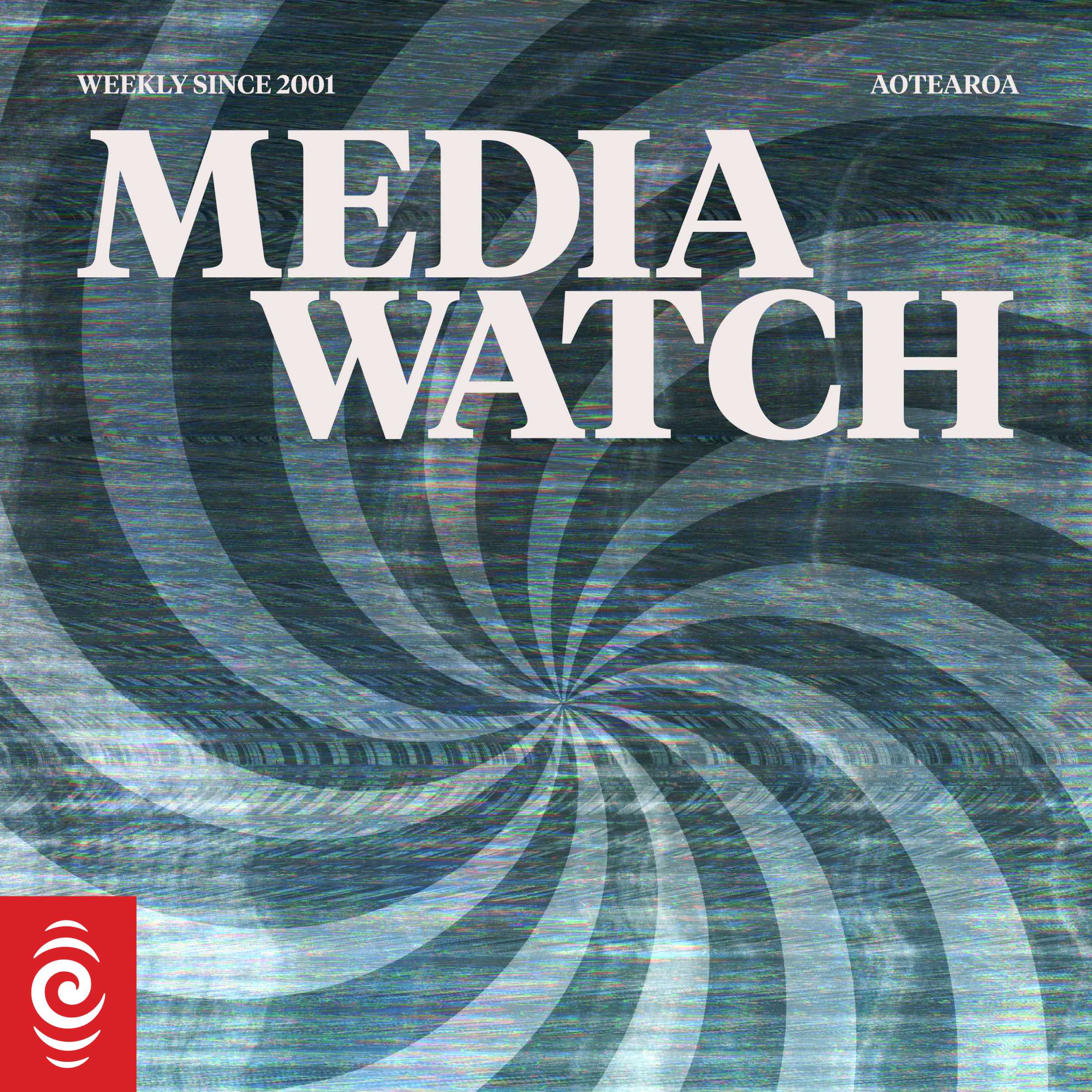

Mediawatch
RNZ
There's never a shortage of opinions on the media but Mediawatch looks at it all in detail for those keen to know more about the news - as well as those who work in media.
Episodes
Mentioned books

Aug 7, 2024 • 25min
Midweek: AI, the IOC & an AGM
Colin Peacock talks to Todd Zaner about reactions to the revelation the Herald used AI to write editorials - and what was revealed by coverage of the National Party's AGM last weekend. Also: some standout Olympic media moments and unexpected acapella jingles. Go to this episode on rnz.co.nz for more details

Aug 3, 2024 • 31min
Mediawatch for 4 August 2024
Mediawatch looks at a controversy over the use of AI artificial intellgince the New Zealand Herald - and asks if readers should be told when AI technology creates news content. Also: how the media jumped the gun over our lack of medals at the Olympics - and an unconvincing complaint about the All Blacks spurning our media.
Go to this episode on rnz.co.nz for more details

Jul 31, 2024 • 22min
Midweek: Punching below our weight
Hayden Donnell talks to Emile Donovan about the Herald using AI for an editorial - and he delves into the disappointment over our lacklustre Olympic medal count so far. Also - peeling back layers of health bureaucracy and a very personal challenge to a reality TV show. Go to this episode on rnz.co.nz for more details

Jul 27, 2024 • 37min
Mediawatch for 28 July 2024
Mediawatch looks at how the media reacted to the Abuse in State Care report - and the role the media played in bringing the issue to light. Go to this episode on rnz.co.nz for more details

Jul 24, 2024 • 23min
Midweek: Biden's bolt blindsides media
Colin Peacock talked to Emile Donovan about how the media handled the news that Joe Biden had thrown in the towel - and the final report from the Inquiry into Abuse in State Care. Also Colin also looked at a revealing local report about a local high school - and something he got wrong about his own primary school days. (Sorry Mr Patchett . . . ) Go to this episode on rnz.co.nz for more details

Jul 20, 2024 • 34min
Mediawatch for 21 July 2024
Mediawatch looks at what our media made of the government's new emissions plan - and how best to cover global climate change without pumping up people's despair. Mediawatch also talks to an RNZ reporter who got a rare opportunity to find out what's going on Nauru, where journalists have been kept at arm's length for years.Go to this episode on rnz.co.nz for more details

Jul 17, 2024 • 26min
Midweek: Breakfast gets cooked
Hayden Donnell talks to Emile Donovan about TVNZ Breakfast getting dragged into the Trump shooting debate, some NZME criticism from NZME, TVNZ's exclusive interview with isolated Green MP Darleen Tana - and Hayden apologises for mixing up his memes.Go to this episode on rnz.co.nz for more details

Jul 14, 2024 • 33min
Mediawatch for 14 July 2024
Mediawatch looks at how our media reacted to the shocking news of the attempt on Donald Trump's life in Pennsylvania. And shortly before that news broke, Colin Peacock a look at the week's news and media live on Sunday Morning with Hayden Donnell - including how it panned out in the first week of Stuff's ThreeNews, a change for TVNZ's Re:News, a significant change in the government's stance on affordable housing - and horoscopes in the news.
Go to this episode on rnz.co.nz for more details

Jul 10, 2024 • 26min
Midweek: False gods of sport
Colin Peacock talked to Emile Donovan Stuff making a solid start with ThreeNews on TV; the British media making a meal of their landslide election and local democracy reporting's financial reprieve. Also: the unhealthy obsession with the world's most famous footballer - and Emile gives Mediawatch the (remixed) gift of music. Go to this episode on rnz.co.nz for more details

Jul 6, 2024 • 36min
Mediawatch for 7 July 2024
After 30 years, the classic News Hub format bids farewell as a new bulletin partners with Stuff. The podcast discusses viewer expectations and the impact of budget cuts on news quality. It humorously reflects on a reporter's performance during the launch and critiques audience engagement strategies. Proposed legislation aims to involve tech giants in supporting local news. As traditional TV networks face viewer decline, the challenge remains to attract younger audiences while fostering quality reporting and shared viewing moments.


